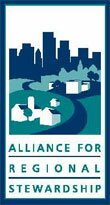|
Blueprint for Achieving Regional Results > Who
Who: Get Together and Get Going

Getting started is both the easiest part and the hardest part. It?s easy because, after all, people like to come together and talk about what?s wrong, or what?s right, in their communities and regions, and to share their own vision for the future. You don?t need anybody?s permission. But, as we all know, talking the talk is much easier than walking the walk. Here?s what we?ve learned that could help you get walking quickly and in the right direction.
Get People Together. As Jim Collins urges in his book Good to Great, who should always come before what. Get together a group of impatient change agents (early adopters) who see a compelling issue that requires regional attention or an opportunity that they must seize immediately. An ideal convener is usually a neutral party who has credibility and influence in the community. Whether an organization (such as a community foundation or citizen?s league) or an individual (such as a recognized civic or business leader), the ideal convener creates a safe public space for dialogue and conversation ? not as an end unto itself, but to begin to surface ideas that can turn into realities.
Do Your Homework. When people come together to talk about their communities and their future, they often bring opinions about what?s right or what?s wrong, how the community?s doing, and where it should be headed. Opinions are sometimes only that. Early on in your discussions, it will be helpful to ground the discussions in some good analysis ? even a basic benchmarking against comparable or competitor regions, or some simple trend analysis on key issues to see whether things are getting ?better? or ?worse?.
Sooner rather than later, you?ll also want do some deeper analysis. Credible, provocative analysis and reports from credible community sources ? a national or local think tank or university, a thorough and thoughtful newspaper series, can serve not only to build the skeleton of the story you?re going to tell but should also begin the process of leading the region to some concrete recommendations for change. Some of that policy analysis will be useful in the public arena and some will come into play downstream when you get more focused on results and process. Always save a little analytical powder so that you can do more homework as needed.
Learn from Other Regions. Leadership exchanges to other regions and interactions with their leaders can be an important catalyst for conversation about a region?s aspirations and possibilities. These visits allow participants to build relationships with each other, and can help create a sense of ?envy and urgency? that will add momentum to your pursuit. In a variation on this process, conveners can bring outsiders into a region to bring knowledge of what leading regions are doing nationally. Both options can inspire and motivate leaders to take action.
Pay Attention to Timing: Read the Waves and Pick One to Surf. It?s said that life is all timing. How true. Think of the surfer picking a wave ? a little too early, a little too late, a bad read on the wave, and it?s all over. So one of the most useful skills for change engineers to develop is the ability to evaluate changes in the socio-economic environment ? waves on the community horizon ? that create openings or opportunities for change. Like what? A loss or defeat for the community (a big employer leaves or a plant or military base closes, for example.). A crisis or disaster ? natural or man-made. A frank and well-publicized statement from an important and credible source (a major business leader states publicly she?d never locate her company in your region because of your poor education system). A big idea or aspiration (could our community compete for an Olympic bid?) The arrival of new catalytic leaders on the scene. Significant events at the national or international level that have an impact on your region.
Blueprint for Achieving Regional Results
____________
|
Gain access to practical insights, advice, ideas, and cutting-edge practices from around the country.
ARS is the nation?s premier peer-to-peer network of civic entrepreneurs working to build vibrant, globally competitive regions.
|


